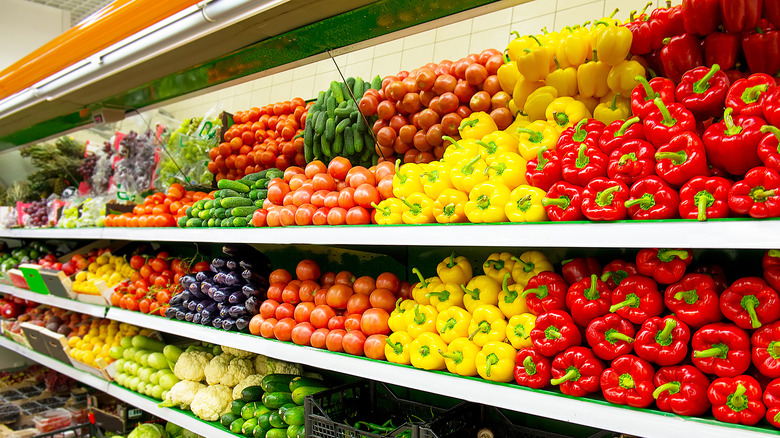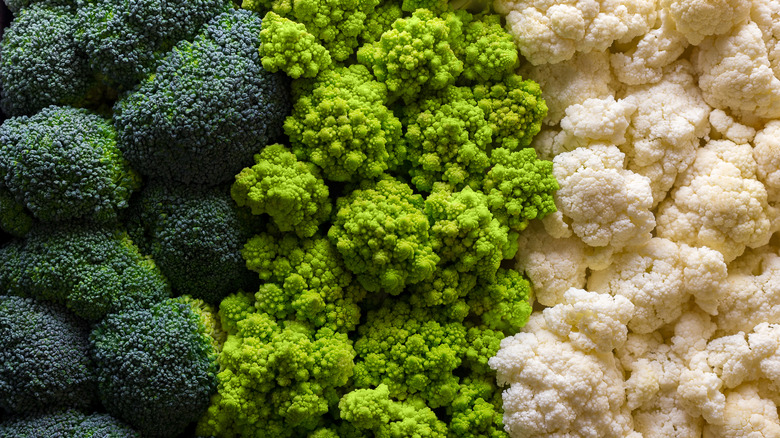You're Eating Too Many Vegetables If This Happens To You
Vegetables are essential for a healthy and well-balanced diet. They're low in calories and loaded with important vitamins and minerals. However, more isn't always better. In fact, eating too many vegetables can actually cause digestive issues (via Refinery29). That's because vegetables are a great source of dietary fiber, which can cause gastrointestinal discomfort and distress when consumed in excess.
According to the U.S. dietary guidelines, the daily recommended intake of vegetables is two and a half to three cups daily. While most Americans don't eat enough vegetables, it's still possible to overdo it. As it turns out, eating more than five servings of vegetables a day can lead to gas, bloating, and stomach cramps. When fiber is broken down and fermented by the intestinal microbiota (bacteria in the colon), it produces gas, which can result in bloating and discomfort. The more fiber and vegetables you eat, the more likely you are to experience gas, bloating, and other digestive problems.
How to prevent gas and bloating from vegetables
While the easiest solution is to cut back on the amount of vegetables you eat every day, there are some adjustments you can make to help reduce the risk of digestive discomfort. Although all vegetables contain fiber, some have more than others (via The Zoe Report).
For instance, you might want to reduce your intake of raw vegetables, especially if you have a sensitive stomach or a gastrointestinal disorder like irritable bowel syndrome (IBS). Raw vegetables contain more essential nutrients, which means they also contain more fiber. This can be a problem if an excess of dietary fiber is the source of your increased gas and bloating.
You might also want to eat less cruciferous vegetables like kale, cauliflower, and broccoli. Cruciferous vegetables are complex carbohydrates that are particularly high in fiber, especially when they're uncooked. If your daily fiber intake already exceeds the recommended amount, eating raw cruciferous vegetables can be particularly rough on your stomach. "When cooked, these vegetables are great sources of nutrition and fine side dish substitutes for pasta, rice, and potatoes," Dr. Niket Sonpal, an adjunct assistant professor at Touro College of Osteopathic Medicine, told The Zoe Report. "However, when cauliflower is chopped up and eaten raw along with kale, broccoli, and Brussels sprouts, you can expect bloating to occur. Cooking is key."

